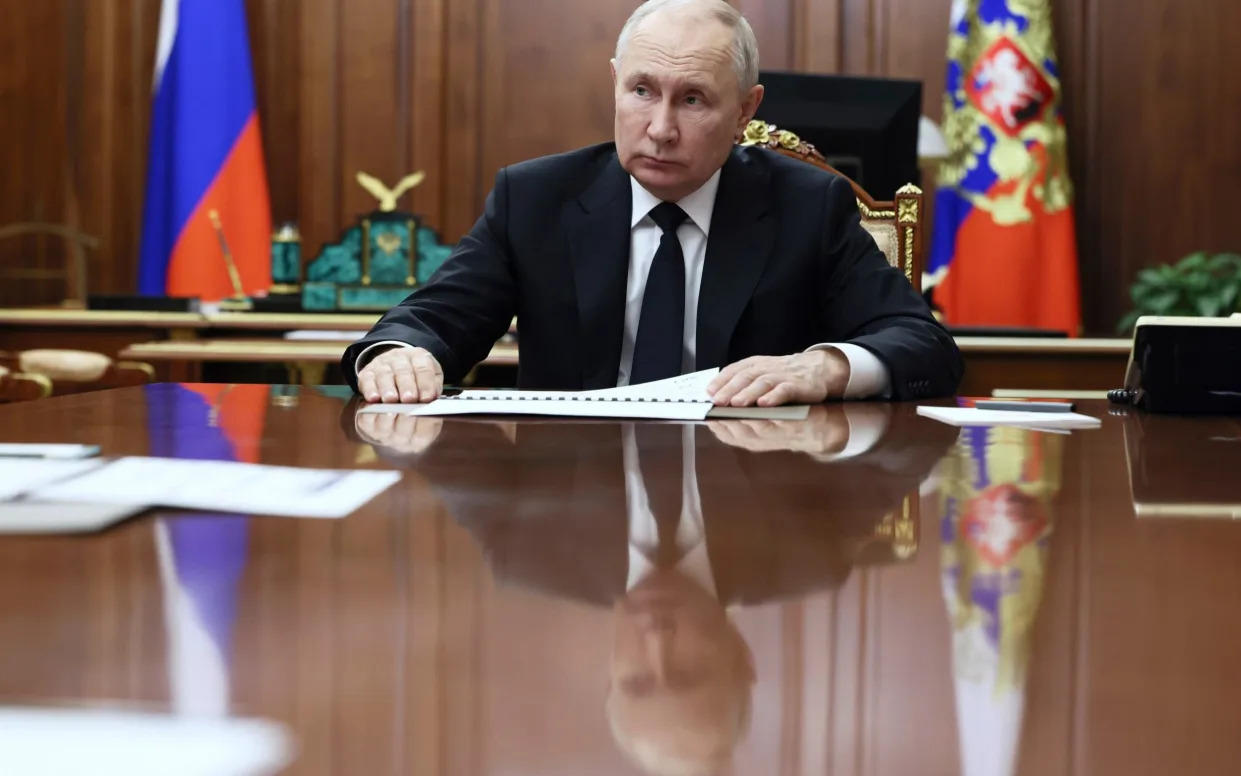The Latest - Hamas visit Moscow as Putin makes a 'cold-blooded calculation'

Talks about the meeting between Russian officials and Hamas in Moscow.
Yesterday, Russian officials met with Hamas, who praised them for taking an active role in the war and released several pictures of the meeting between Russian officials, Hamas and Iran’s deputy foreign minister.
It has led to a wave of condemnation by many Western leaning countries. Israel has called it an obscene step that gives support to terrorism and legitimises the atrocities of Hamas terrorists. Some are going further and have asked whether it shows Russia is forming an axis of terror with Hamas, mediated by Iran, which already of course supplies Moscow with drones for its war in Ukraine.
Frankly, I’m shocked that people are shocked by this development as we’ve been discussing on the podcast ever since the attacks, all evidence seemed to suggest that Putin was willing to abandon his longstanding relationship with Israel in favour of closer ties with Iran and its Islamist allies, who carried out the terror attacks on Israel and have stepped up a bombing campaign on American troops in the wider Middle East.
Francis continues
It’s designed to show the global Muslim community, Arab states, that Russia is on their side, something that offers him numerous benefits in terms of international leverage and applying domestic pressure and distraction within many Western countries. I argue that Putin’s humanitarian interventions, and I say that very much in inverted commas, over events in the Middle East is and has to be understood as a cold blooded calculation.
Try telling the child of a parent killed in one of the thousands of Russian bombardments in Ukraine that the Kremlin believes innocent people, including women and children, should not be punished for other people’s crimes, which Putin claims is his motivation for these talks. In truth, in the unscrupulous world of geopolitics, the crisis in the Middle East is too good an opportunity for Moscow to miss.
For the first time in almost two years, as we’ve discussed on the podcast, international attention, at least in the West, has shifted away from the Kremlin’s disastrous special operation in Ukraine, offering Putin a leg-up back onto the world stage. But it’s not just Moscow that stands to benefit from this, so does China, who are all too eager to rally Arab nations and African countries, who are of course more sympathetic to the Palestinian cause, to its side, hence why Moscow and Beijing just use their vetoes to block a US-drafted UN Security Council resolution condemning Hamas and expressing support for Israel’s right to self defence.
Speaking at the EU Council meeting in Brussels, Brussels Correspondent Joe Barnes relays his feelings on the priorities of the EU diplomats he speaks to.
It’s clear that Ukraine is still a massive, massive subject for them.
Because not only are they so engrossed in the subject, everyone’s thrown their hats in essentially. They’ve gone all in, if we were to use a poker analogy. But for some member states it’s more of a priority than others. So if you speak to the Easterns, the Baltics, I spoke to a Baltic diplomat yesterday and they were saying, look, Ukraine is still our number one topic and they were saying that our leader is going to really push and make sure that it is a priority for leaders.
We really need to carry on sort of fighting for Ukraine and helping Ukraine as best as we can. Others will focus more on Israel.
War in Ukraine is reshaping our world. Every weekday The Telegraph’s top journalists analyse the invasion from all angles - military, humanitarian, political, economic, historical - and tell you what you need to know to stay updated.
With over 55 million downloads, our Ukraine: The Latest podcast is your go-to source for all the latest analysis, live reaction and correspondents reporting on the ground. We have been broadcasting ever since the full-scale invasion began.
David Knowles
David is Head of Audio Development at The Telegraph, where he has worked for nearly three years. He has reported from across Ukraine during the full-scale invasion.
Dominic Nicholls
Dom is Associate Editor (Defence) at The Telegraph, having joined in 2018. He previously served for 23 years in the British Army, in tank and helicopter units. He had operational deployments in Iraq, Afghanistan and Northern Ireland.
Francis Dearnley
Francis is assistant comment editor at The Telegraph. Prior to working as a journalist, he was chief of staff to the Chair of the Prime Minister’s Policy Board at the Houses of Parliament in London. He studied History at Cambridge University and on the podcast explores how the past shines a light on the latest diplomatic, political, and strategic developments.
- Questions and Answers
- Opinion
- Story/Motivational/Inspiring
- Technology
- Art
- Causes
- Crafts
- Dance
- Drinks
- Film/Movie
- Fitness
- Food
- Games
- Gardening
- Health
- Home
- Literature
- Music
- Networking
- Other
- Party
- Religion
- Shopping
- Sports
- Theater
- Wellness
- News
- Culture
- War machines and policy


